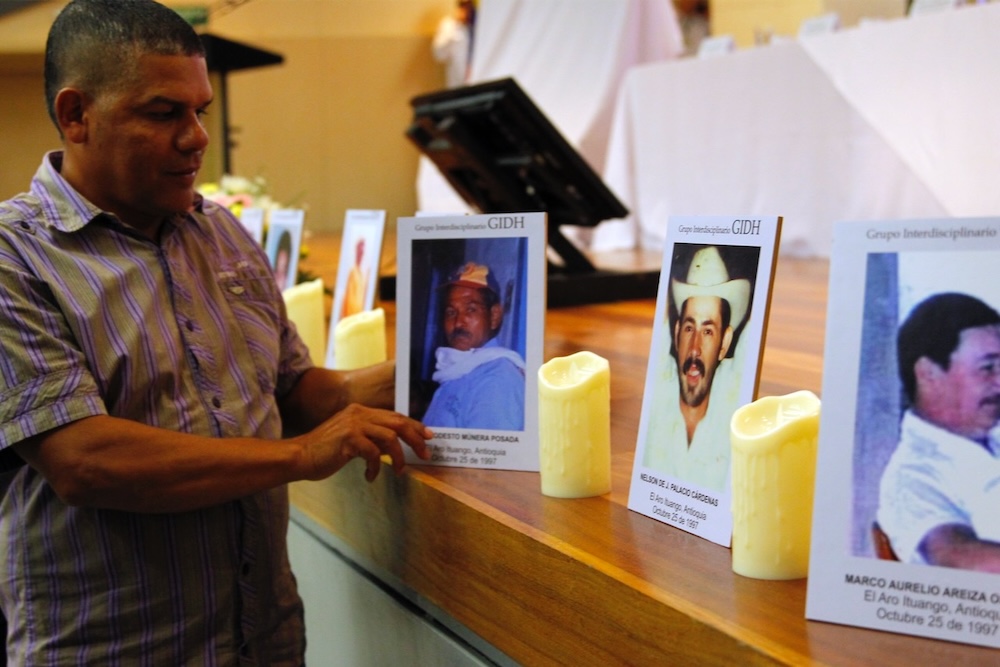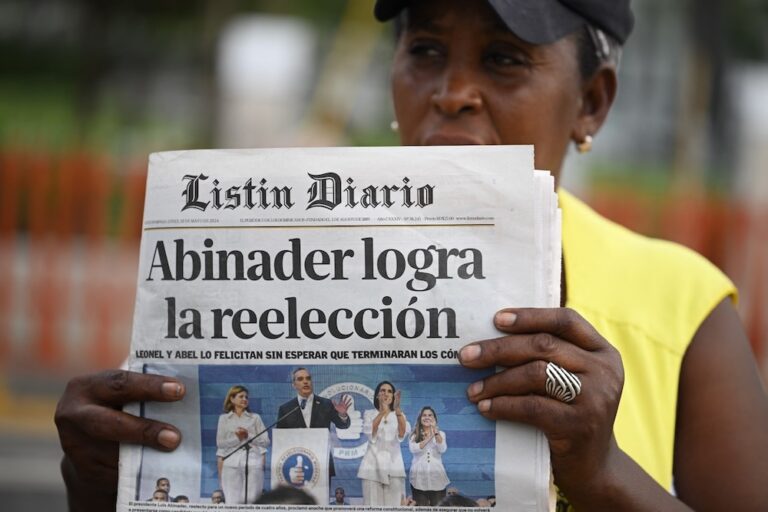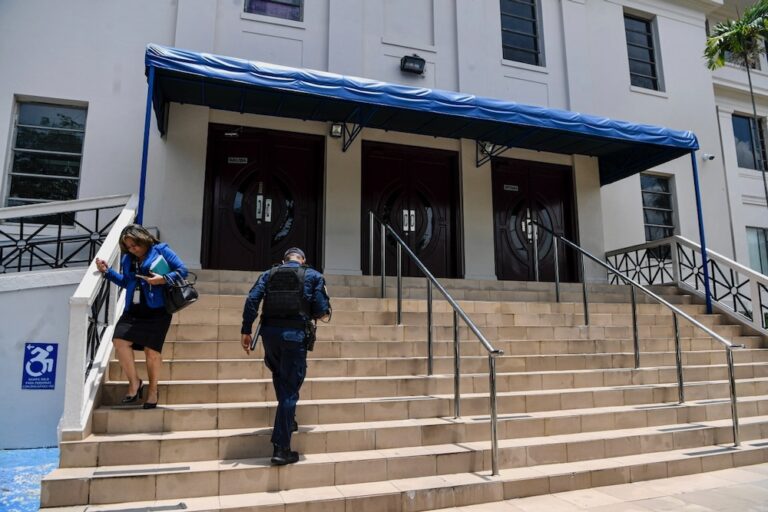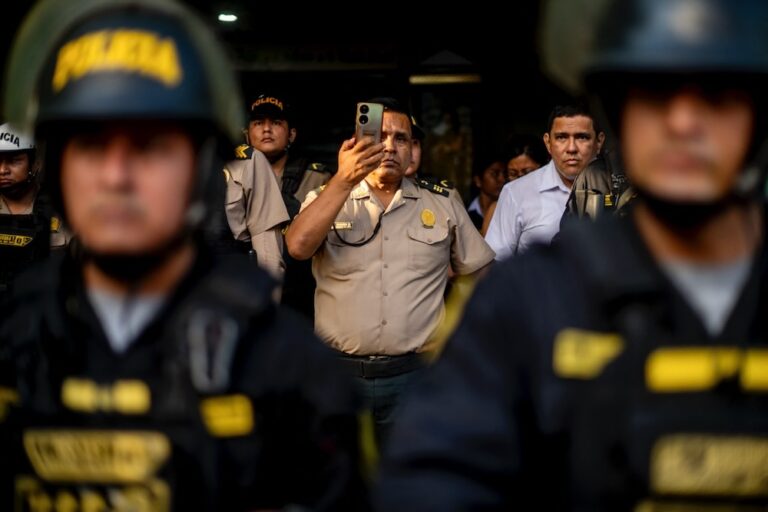April 2025 in the Americas: A free expression and civic space round-up produced by IFEX's Regional Editor Laura Vidal, based on IFEX member reports and news from the region.
In Peru, a newly enacted law grants sweeping control over civil society organisations, undermining their independence and exposing human rights defenders to severe sanctions. In Mexico, a controversial telecommunications reform proposal also raises concerns for its potential to legalise censorship and surveillance, harming historically excluded communities in particular. Amid these concerns, there was a rare step toward justice in Colombia, where the State acknowledged its responsibility for the murders of two journalists after more than 30 years.
Colombia: Historic agreement recognises state responsibility for the murders of journalists Julio Daniel Chaparro and Jorge Torres
The Colombian government and representatives of the families of journalists Julio Daniel Chaparro and Jorge Torres have signed a settlement agreement before the Inter-American Commission on Human Rights (IACHR), 34 years after the murders took place.
According to IFEX member the Fundación para la Libertad de Prensa (FLIP), this decision marks a significant step toward justice by acknowledging the State’s responsibility and committing to full reparations for the moral, material, and immaterial damages. The Colombian State also commits to ongoing judicial oversight, victim reparations, and the adoption of binding directives for prosecutors nationwide.
Chaparro and Torres, both reporters for El Espectador, had travelled to Segovia, Antioquia in 1991 to document the community’s memories of the 1988 Segovia massacre, as part of the series Lo que la violencia se llevó (“Gone with the violence”). The case has long been marred by investigative failures and judicial contradictions. After initial arrests, the suspects were freed due to procedural flaws, and in 2011 prosecutors concluded that the journalists had not been killed because of their profession – a claim widely disputed by press freedom advocates.
Peru: New law threatens the autonomy of civil society organisations
This month, Peru enacted a controversial law that seriously threatens the defense of human rights and undermines key civil liberties. Passed by Congress on 12 March without Executive Branch observations, the law violates Peru’s international obligations to uphold freedom of association, expression, assembly, and access to justice.
It grants broad control powers to the Peruvian Agency for International Cooperation (APCI), imposing a system of prior authorisation on the activities of civil society organisations that receive international funding. Moving forward, these organisations must secure State approval before implementing projects and activities, which directly undermines their autonomy and independence.
Echoing repressive measures seen in Nicaragua, Venezuela, and Paraguay, the law weaponises transparency mechanisms to suppress critical voices. IFEX-ALC joined over 60 organisations in Peru and the region in condemning its approval and expressing concern over the expansion of this regional trend.
Mexico: Civil society raises alarm over telecommunications reform proposal
In Mexico, IFEX members R3D and ARTICLE 19 Mexico and Central America are concerned about a proposed reform to the Federal Telecommunications and Broadcasting Law. Initially expected to be fast-tracked during the current legislative session without open parliamentary discussions or thorough human rights impact assessments, the initiative – as proposed – poses a significant threat to freedom of expression and digital rights.
According to R3D, the current wording of the bill would allow authorities to impose extreme restrictions on internet freedom without judicial oversight. This includes the potential blocking of entire digital platforms – a measure comparable to shutting down a radio or television station – in direct violation of the constitutional and Inter-American standards prohibiting prior censorship.
ARTICLE 19 Mexico and Central America further warns that the proposed reform, with its ambiguous language, would legalise prior censorship and mass surveillance practices, disproportionately harming historically excluded communities and reversing gains in representation and access to information.
Following widespread criticism, the Senate announced it would open a formal discussion process. The announcement came shortly after President Claudia Sheinbaum publicly urged senators to pause the vote and review the proposal more carefully.
In Brief
- Colombia: Journalist Jineth Bedoya Lima announced that she is abandoning the search for justice in her case, citing decades of impunity despite international rulings and public commitments.
- IPYS Venezuela launched a microsite highlighting the work of journalists who continue reporting despite censorship and repression.
- C-Libre warned of growing information obstruction by public officials and attacks against journalists further threatening press freedom in Honduras.
- IAPA launched “Relpex”, a platform amplifying the voices of journalists forced into exile.



